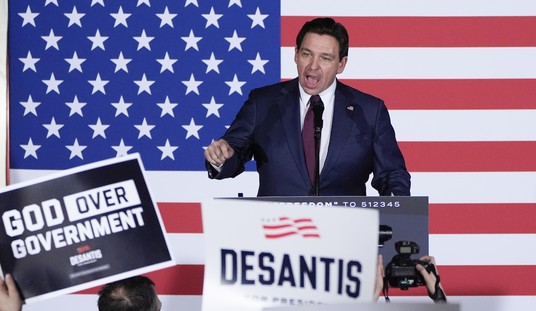Seldom has an election with so many potential repercussions been so hard to predict. You know how it usually goes on election night: One candidate leads in most of the polls, or the polls are tight but the election’s being held in red or blue territory, so you have a sense of who’s likely to win. Not this time. Some polls show Roy Moore cruising to a 10-point win; at least one, from Fox News no less, shows Jones winning by 10. Democrats could turn out en masse due to disgust with Moore and a juicy opportunity for a Senate pick-up — or they could be swamped by Republicans, buoyed by Trump’s endorsement and eager to extend a middle finger to a political class that views Moore with contempt. There’s scandal in the mix and a Republican nominee who historically has run behind other Republicans, but there’s also an abortion-on-demand Democrat on the other side and a raft of news stories about how black voters don’t seem to be showing much interest. Plus it’s a special election, where turnout is always unpredictable, and it’s for a Senate seat, where polling is always a bit screwy even under the best circumstances. Anything can happen.
Which means the actual result will probably be something like Moore by six or seven points, just as everyone might expect under the usual laws of political gravity in Alabama. (Any other Republican would be expected to win by 20-25.) Data nerds have been tearing their hair out trying to get a sense of where things really stand given the hash of polling over the last few weeks. While no one is confident, the two Nates — Silver and Cohn — both seem to trust live-interview polls, where the respondent talks to an actual person, over automated ones, where the respondent talks to a machine. How come? For one big reason: Automated polls aren’t allowed to contact people on cell phones, and the cell-phone demographic tends to skew younger and more liberal than the general population. That means automated pollsters could be serially underestimating support for Jones. And in fact, when you compare the live-interview polls of Alabama taken this past month to automated polls, Jones does notably better in the former — including that blockbuster Fox News poll. Cohn:
In general, there are strong reasons to prefer the live-interview telephone surveys from The Washington Post and Fox News. They contact voters with cellphones; the automated pollsters call only voters with a landline. Several automated pollsters now supplement their samples with online data, but some of the automated pollsters in Alabama do not. This is a likely source of a fairly persistent Republican lean in landline-only automated surveys since the 2010 midterm election.
Another reason to prefer the live-interview polls: They tend to be higher-quality surveys, while many of the public automated polls are surprisingly inaccurate. This isn’t true of all automated polls — SurveyUSA, for instance, has long stood out as a notable exception. But many automated polls disclose little about their methodology, while others disclose just enough to reveal serious methodological shortcomings.
Automated polls also tend to get lower response rates than live-interview polls do, notes Silver, which means the sample may to some extent be self-selecting. Result: Whereas live-interview pollsters have a broad cross-section of the electorate, automated pollsters have to compensate for their lack of data from cell-phone users by weighting the demographics according to certain assumptions. If their assumptions are wrong, so is the result of the poll. All of that points to a better-than-expected showing for Jones tonight — although there’s a bigggggg catch. The one clear advantage automated polls have over live-interview ones is that there’s no shame involved in telling your preference to a machine. Given all the seamy scandal allegations about Moore lately, some voters may be telling live interviewers that they intend to vote for Jones when in reality they’re planning to vote for Moore. So maybe it’s Moore who’s set for a better-than-expected showing tonight.
See why this race is such a nightmare to predict?
As for repercussions, where to begin? The Senate math is the easy part and arguably the most trivial: A Jones win means McConnell’s majority shrinks to 51/49, making it that much harder to pass anything, but thanks to reconciliation and the end of the filibuster for judicial nominees the GOP can still do much of what it wants to do if it hangs together. A Moore loss would be a blow to Trump, though, as he’d have gone all-in for a scandal-stained populist in hopes of dragging him over the finish line and been rebuffed in the deep south, the second time in just a few months that a supposedly reliable state would have ignored his endorsement. (He backed Luther Strange in the primary, remember.) Moore losing would also be a setback for Steve Bannon’s project to replace Republican establishmentarians in the Senate with populist insurgents, as Moore’s failure would reinforce McConnell’s warnings that fringy candidates don’t deliver in the general election. Bannon will spin a defeat as he always does, by blaming “the swamp” for uniting against Moore, but after having gone to Alabama and rallied for Moore multiple times, a rejection by voters would damage his political cachet too.
And if Moore wins? The Bannonite populists will have established a beach-head in the Senate, making the unity of the caucus unpredictable going forward. McConnell will suddenly have a headache in what to do about an ethics investigation of Moore and possible expulsion. Any weird thing Moore says will be weekly fodder for the media to ask his colleagues whether they agree. Trump, meanwhile, will embrace him since Moore will have proved he’s a winner — always the most important quality in Trumpworld — despite the fact that he came closer to losing this race than either Strange or Mo Brooks as nominee would have. But here’s the main repercussion: Win or lose, Moore’s candidacy will deepen the divide on the right between populists and non-populists. If he loses the former will blame the latter for having knifed him in the back by refusing to be good soldiers for the party the way grassroots Republicans usually are for underwhelming establishment candidates. If he wins the latter will blame the former for having abandoned their sense of morals and electing a gay-hating accused child molester to the Senate for no better reason than that he wears Team Red’s jersey. There will be blood tomorrow no matter what happens tonight. Expect a few theatrical “I’m leaving this garbage party” declarations from whichever GOP faction ends up disgruntled by the outcome.
Reason enough to stay up and watch! Polls close at 8 p.m. ET. Decision Desk HQ will have live vote totals, although you can keep track simply by watching the widget below:
And here’s the handy dandy live Twitter widget, which includes Hot Air/Townhall editors *and* a collection of some of the highest quality data nerds in media, tracking results. It’s as fast as cable news is in highlighting key trends in the results and often faster. Via Dem pollster Zac McCrary, Jones’s blueprint for an upset is simple if difficult: He needs to pile up mountains of votes in blue urban counties (Jefferson, Madison, Montgomery, and Mobile), hope that rural black voters turn out in greater than expected numbers in the Black Belt, and hit 35-40 percent or better in key red counties (Shelby, Morgan, Limestone, Morgan). I’m skeptical, but anything can happen.
Tweets from https://twitter.com/allahpundit/lists/ha-townhall








Join the conversation as a VIP Member